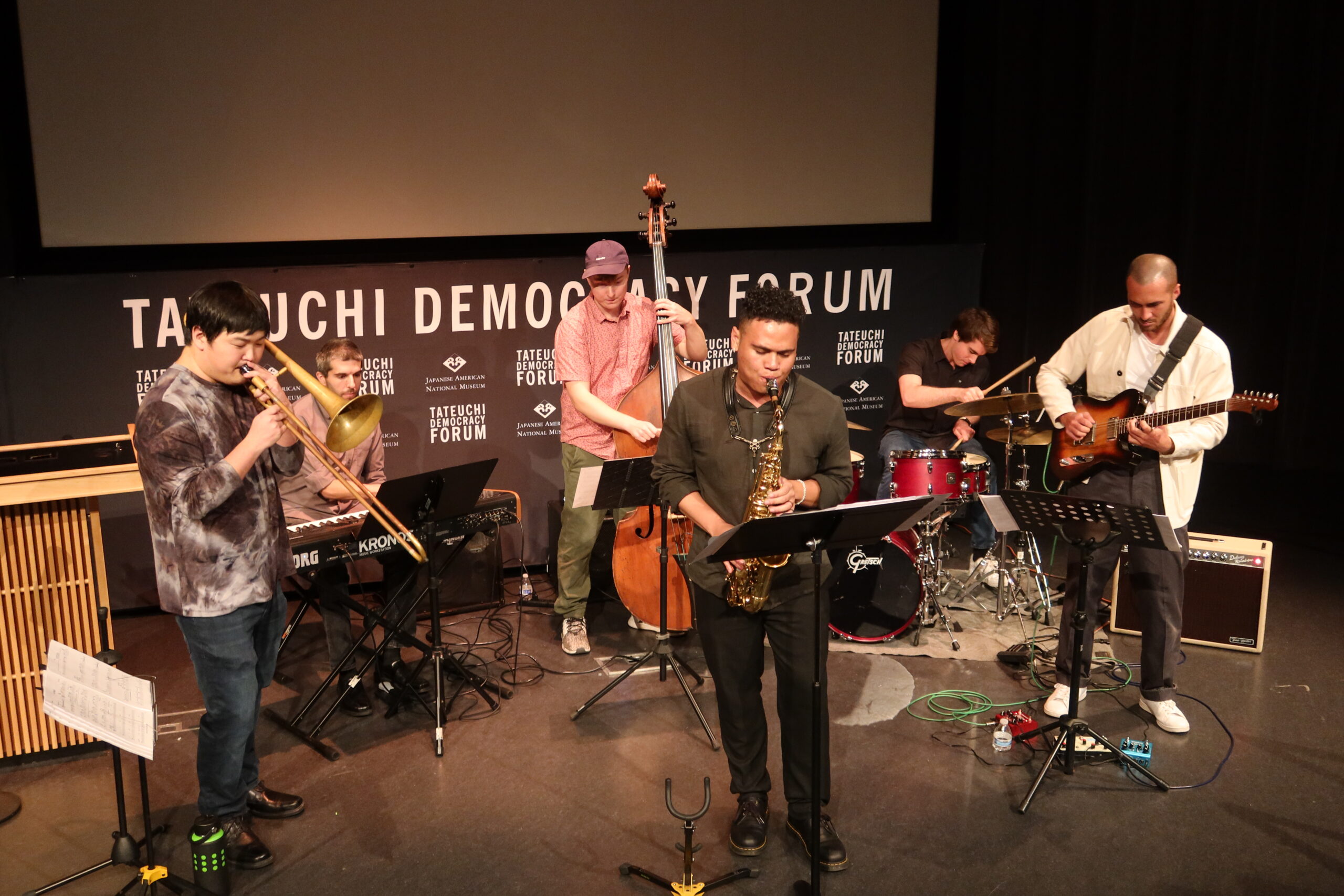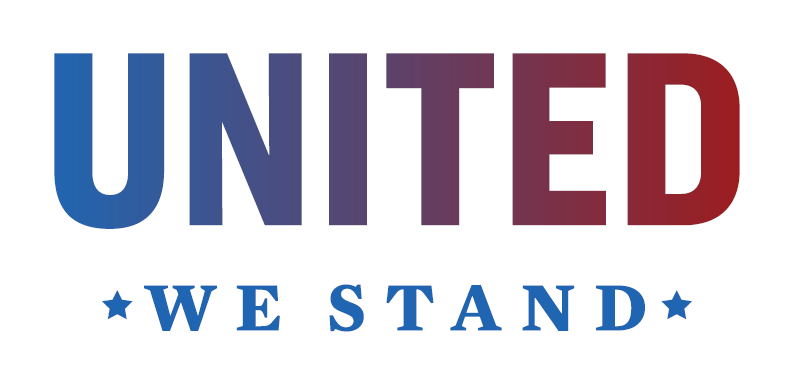
United We Stand: Connecting Through Culture
The frequency of hate crimes against racial groups in the United States is alarming and threatens the fundamental ideals of democracy. Hate crimes have increased by 80% since 2015, according to FBI records, with 2021 reaching record levels. FBI data also shows that hate crimes against racial groups spike in an “unmistakable pattern” around the same time as general elections. With the much-anticipated 2024 elections on the horizon, California Humanities will participate in United We Stand: Connecting Through Culture, a joint initiative of the National Endowment for the Humanities (NEH) and the National Endowment for the Arts (NEA) that leverages the arts and humanities to combat hate-motivated violence.
In collaboration with Zócalo Public Square, a nonprofit that hosts national public forums, California Humanities will use public presentation and civic dialogue to combat hate through a series of four programs that foster understanding, empathy, and resilience. The series will use the humanities to demonstrate intercultural connection and recognition of shared values to strengthen mutual understanding and foster the spirit of democracy. Titled What Connects Us, Resilience Against Hate, council staff will collaborate closely with team at Zócalo to shape the content of the series, select speakers, moderators, and panelists and to tailor each event to the core themes of the United We Stand initiative.
Partners
United We Stand is made possible by the National Endowment for
the Humanities (NEH), in partnership with Zócalo Public Square.

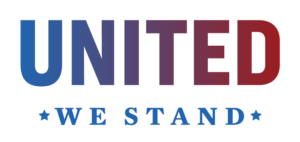

As a majority minority state, California encompasses diverse cultural traditions and perspectives. In that spirit, we must combat hate-based violence and extremism through the humanities, which play a critical role in developing empathy and strengthening respect and mutual understanding by connecting us through stories and shared experiences. California Humanities views its participation in this national conversation, in collaboration with Zócalo Public Square, as an important initiative to advance equity and help dismantle social and cultural oppression.
Rick Noguchi, President and CEO, California Humanities
Do We Need More Food Fights? from Zócalo Public Square on Vimeo.
Presented in partnership with LA Cocina de Gloria Molina
Thursday September 14, 2023 | La Plaza Cocina
We know cooking best as an act of nourishment, love, and tradition—but it can also cut as sharply as the knives that chop an onion. In Sinaloa, Mexico, a group of relatives of desaparecidos (the tens of thousands of people who have disappeared from the country), have banded together to fight back against government indifference and complicity. Dubbed Las Rastreadoras del Fuerte, the members’ main method of resistance is to search for the bodies of those they love. But they have also brought their battle to the kitchen, where they cook missing family members’ favorite dishes, preserving their memories and reminding the world of the void their absences create. What makes feeding people an act of protest? How do the families of the disappeared continue to find communion, hope, and joy at the table? And where else can cooking be a potent weapon in the face of a fight that feels never-ending?
An exhibition based on Recetario para la memoria, a cookbook that collects recipes and remembrances from these families in collaboration with photographer and creator Zahara Gómez Lucini, is currently on view at LA Cocina de Gloria Molina, a first-of-its-kind museum dedicated to Mexican gastronomy. Zócalo and LA Cocina host Gómez Lucini and culinary historian and Hungry for History podcast co-host Maite Gomez-Rejón to cook pozole in the museum’s demonstration kitchen and discuss what happens when the kitchen becomes a battleground. Afterward, Pez Cantina will cater a reception using the cookbook’s recipes for pozole, mole, and flan. Zócalo and LA Cocina will send online participants the recipe in advance so they can prepare pozole at home.
Location: La Plaza de Cultura y Arte | 501 N Main Street, Los Angeles, CA 90012 (with livestream)
In February 2022, SoFi Stadium marked two milestones. The first was hosting the Los Angeles Rams’ home field victory in Super Bowl LVI. The second was opening an exhibition of the Kinsey African American Art & History Collection. En route to the bathroom or on a beer run, visitors to the stadium’s second level may find themselves taken off guard by letters from Martin Luther King Jr. and Malcolm X, photographs of LA’s early-20th-century Black firefighters, formal portraits of 19th-century Black men and women, and works by major Black artists.
What does it mean to juxtapose this experience with watching professional football players—over 50% of whom are Black—go to battle on the turf below? What have the Kinseys chosen to display, and why at SoFi? And how are other people and organizations, in fields from fine art to poetry, using Black narratives to inform and enrich our understanding of history and contemporary life in unexpected ways?
Artist and Bloom & Plume founder Maurice Harris, sports agent and former NFL player Jacques McClendon, and poet, lyricist, and activist aja monet visit Zócalo and Kinsey Collection at SoFi Stadium to discuss what one of the world’s largest private collections of Black art and historical objects is doing at one of the world’s grandest football stadiums, why it matters, and where similar efforts are scoring big.
6 PM: In-person audience members are invited for a last, best chance to join a guided tour of the Kinsey exhibition, which leaves SoFi at the end of March
7 PM: Conversation, in-person and online
8 PM: In-person audience members are invited to join us for a reception with a DJ and complimentary food and beverages
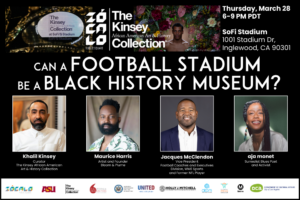
More information coming soon!
As a region of Southern California that was a white supremist stronghold with significant KKK presence in the 1920s, the Inland Empire exemplifies the tension between hate and resistance. The fourth program in the series will highlight the topic of how the Inland Empire fought against (and still fights) hate and domestic extremism. This is a region which recently celebrated the opening of the Cheech Marin Center for Chicano Art and Culture (Riverside) while also banning critical race theory from the high school curriculum (Temecula). As a particularly underserved area of California Humanities, we will engage organizations and grantees who have worked with us before and will create an event in a public place in the summer of 2024. This event will discuss the history of different types of hate crimes in California, including antisemitism, and help our series to spotlight an inland community in addition to the rich programs planned in Los Angeles.
United We Stand Experiences
United We Stand in LA: Exploring Black Art and History at SoFi Stadium
- Blog, Spotlight, United We Stand
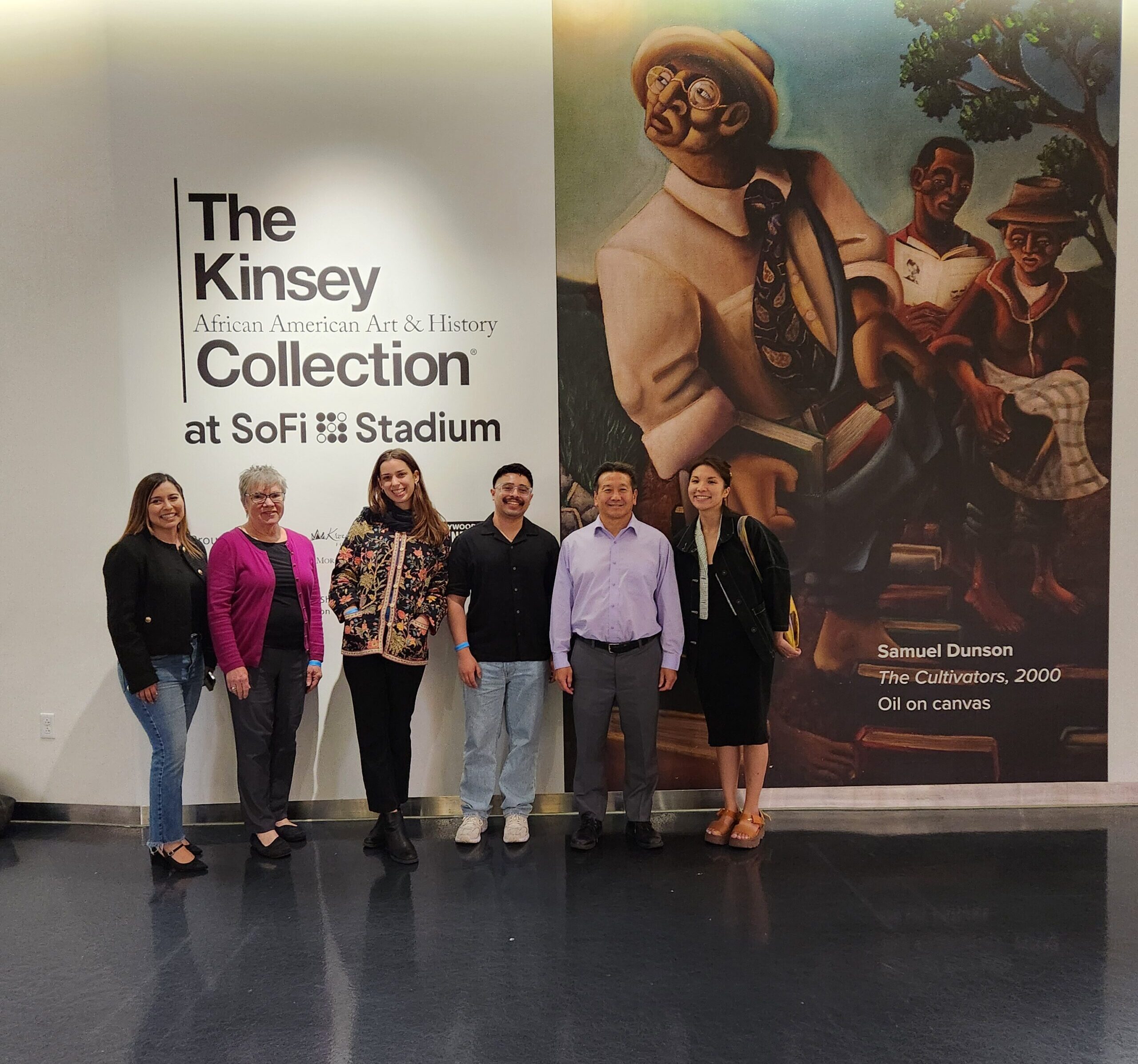
California Humanities in LA: United We Stand, Exploring Little Tokyo and El Pueblo
- Blog, Spotlight, United We Stand
